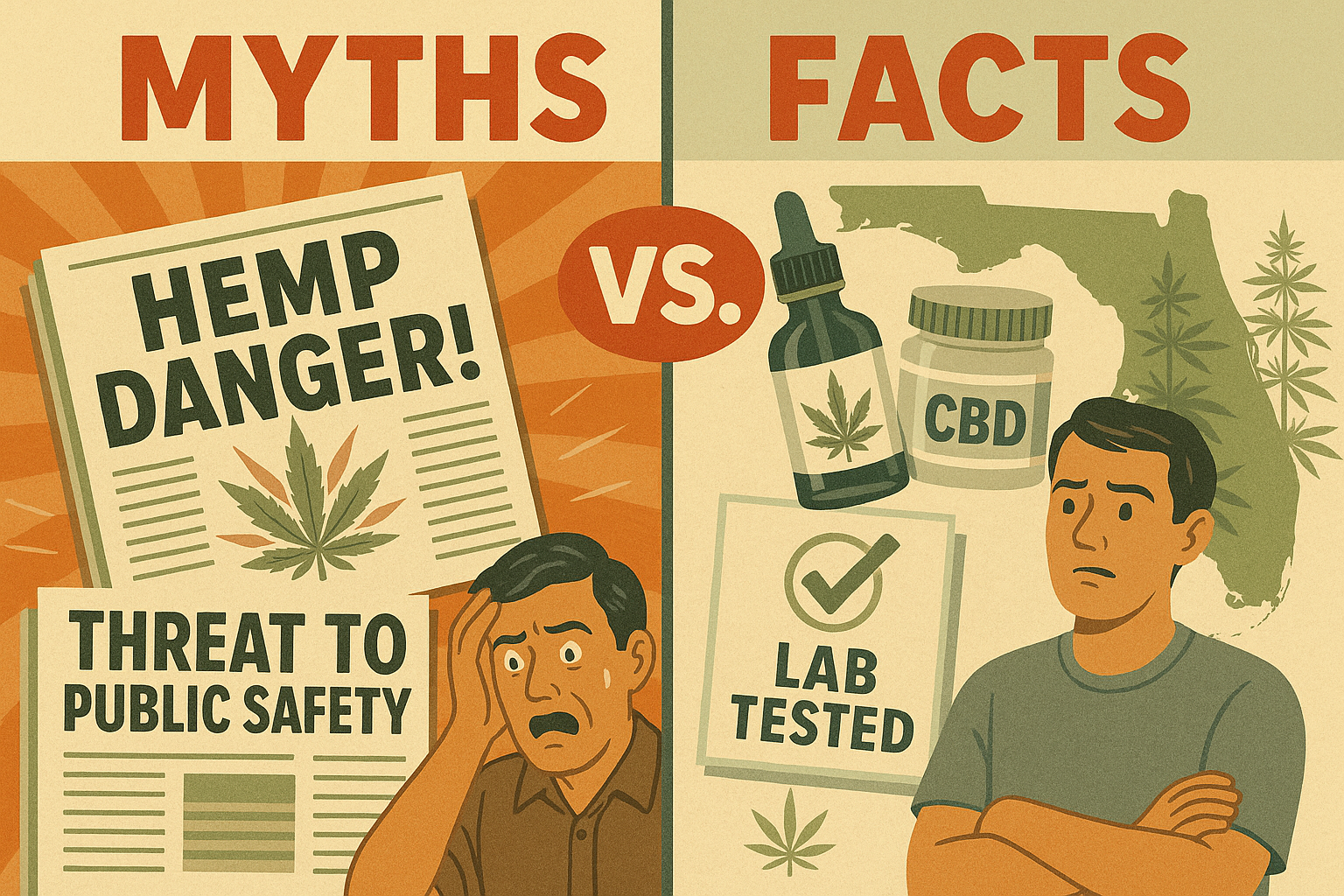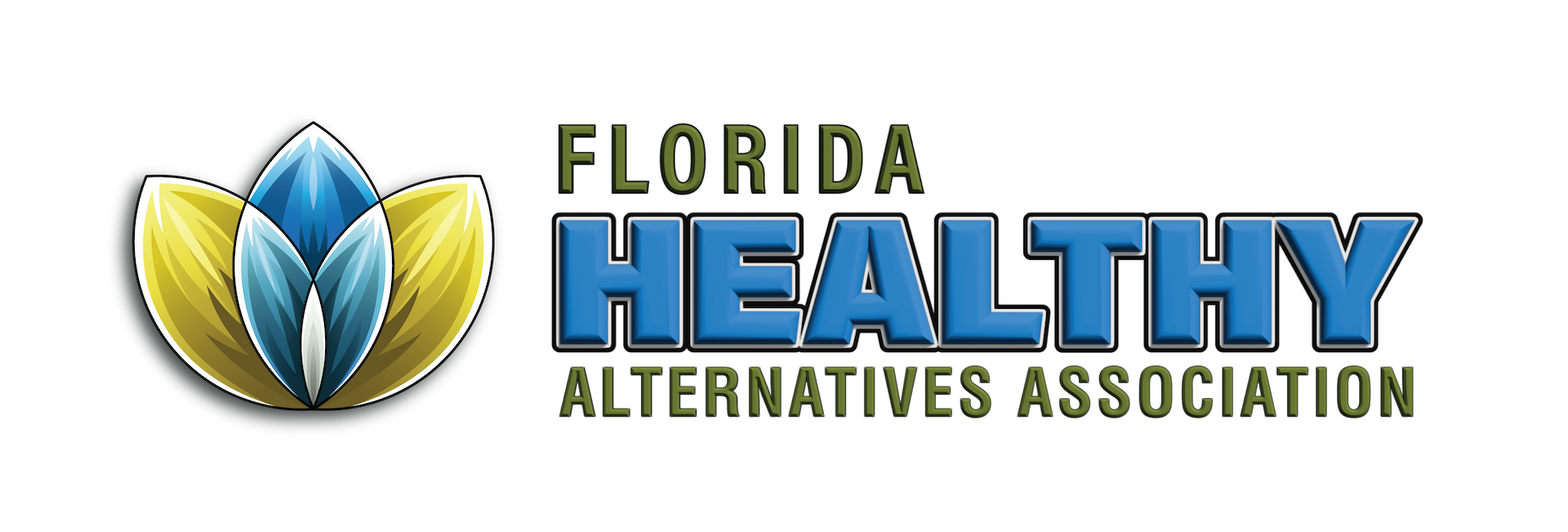
The Misinformation Epidemic Around Hemp
If you’ve been hearing alarming claims about hemp products lately, you’re not alone. News outlets, lawmakers, and even some public health officials are sharing wildly inaccurate or outdated information about hemp-derived cannabinoids like CBD, Delta-8, and CBG.
The result? Fear-based policies that do more harm than good.
Instead of protecting public safety, these proposed bans and restrictions are shutting down local businesses, removing access to federally legal wellness tools, and creating confusion among consumers.
Let’s clear things up—and lay out what responsible hemp regulation should look like.
MYTH #1: Hemp and Marijuana Are the Same Thing
FACT:
While hemp and marijuana come from the same plant family (Cannabis sativa), they are chemically and legally distinct.
Hemp is defined by law as containing less than 0.3% Delta-9 THC—the psychoactive compound that causes a “high.” Marijuana contains significantly more THC and is regulated under different laws.
Hemp products like CBD or Delta-8 may have therapeutic effects, but they do not produce the same psychoactive response as marijuana.
Regulating hemp like high-THC cannabis is like regulating apple cider vinegar like vodka. It’s not scientifically or legally accurate.
MYTH #2: Hemp-Derived Products Aren’t Tested or Safe
FACT:
Most reputable hemp companies in Florida already follow rigorous testing and labeling standards—even without state mandates.
These businesses regularly test for:
-
Potency
-
Pesticides
-
Residual solvents
-
Heavy metals
-
Microbial contaminants
The issue isn't a lack of regulation—it’s a lack of consistent, fair enforcement.
FHAA supports requiring third-party lab testing, transparent ingredient labeling, and age restrictions for cannabinoid products. What we oppose is banning entire product categories based on fear rather than science.
MYTH #3: Hemp Products Are Targeting Kids
FACT:
This myth is not only misleading—it’s harmful.
Hemp products are primarily used by adults managing anxiety, pain, inflammation, insomnia, or PTSD. Many businesses already voluntarily restrict sales to customers 21 and older.
Are there bad actors marketing irresponsibly? Absolutely. But that’s not a reason to punish the entire industry—it’s a reason to create clear marketing guidelines and enforce penalties for those who violate them.
FHAA supports:
-
Restricting psychoactive hemp products to 21+
-
Banning marketing that appeals to minors
-
Requiring child-proof packaging for edibles
What we don’t support? Painting the entire industry with a broad brush based on isolated incidents.
MYTH #4: All Cannabinoids Should Be Banned Except Delta-9 THC
FACT:
Cannabinoids like Delta-8, CBN, CBG, and THCV occur naturally in the hemp plant and have shown promising benefits—from sleep support to anti-inflammatory properties.
Some lawmakers are proposing to ban all cannabinoids except Delta-9 THC—the very cannabinoid long associated with intoxication. That’s backwards.
The answer isn’t to restrict hemp more than marijuana. It’s to regulate all cannabinoids based on safety, not stigma.
What Smart Hemp Regulation Actually Looks Like
At FHAA, we believe in balanced, science-based regulation that protects public safety without destroying access.
Here’s what that looks like:
✅ Mandatory third-party lab testing
✅ Clear labeling for ingredients and potency
✅ 21+ age restriction for psychoactive cannabinoids
✅ Marketing guidelines that prohibit child-appealing packaging
✅ Fair licensing and compliance requirements for small businesses
✅ Enforcement against bad actors, not across-the-board bans
What it doesn’t look like:
🚫 Arbitrary cannabinoid bans
🚫 Burdensome licensing fees that shut out small businesses
🚫 One-size-fits-all THC limits that ignore therapeutic dosing
🚫 Fear-driven policy influenced by outdated science
Why Florida Must Lead with Logic
Florida has a chance to be a model for the nation—a state that supports entrepreneurship, honors veteran-owned wellness businesses, and embraces innovation while protecting consumers.
But if we allow fear, stigma, and corporate lobbying to dictate policy, we’ll lose everything this industry has built.
It’s not just about CBD. It’s about choice, access, and economic freedom.
How You Can Help
🏛️ Contact your lawmakers: Urge them to support science-based hemp regulation—not bans
📢 Educate your community: Share this blog and correct the record when you hear myths
🛍️ Support responsible brands: Buy from companies that test, label, and comply
💬 Speak up at hearings: Your voice makes a difference when policies are being written
Final Thoughts
Regulation doesn’t have to mean elimination.
We can—and must—create a hemp framework in Florida that prioritizes both safety and access. The truth matters. The science matters. And Floridians deserve laws that reflect both.
Let’s move past the myths and build something smarter—together.




